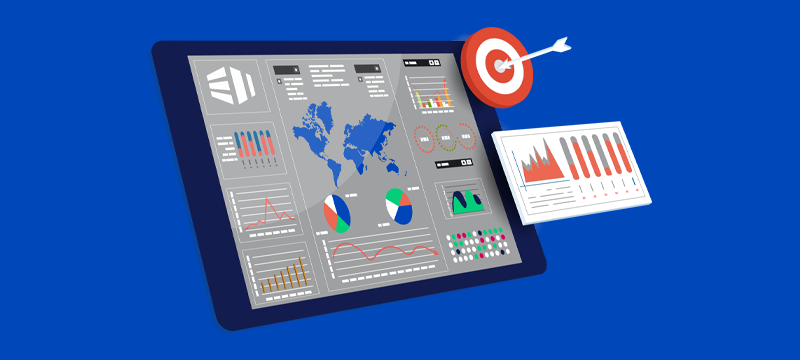Data governance is essential for businesses and organisations seeking the effective management and security of their data. In this article, provides a comprehensive overview of the best practices in data governance and discusses the crucial role that web hosts can play in helping organisations achieve this.
What is data governance?
Data governance refers to the processes and policies implemented by businesses that ensure high data quality, data management and data protection. This includes the practices that govern the proper handling, usage and storage of data. For businesses and organisations, effective data governance is vital for compliance with regulations, such as the General Data Protection Regulation (GDPR), as well as for maintaining the trust of customers and stakeholders.
Best practices in data governance
- Data governance framework
The starting point for any business should be the development of a comprehensive framework that defines the roles, responsibilities and processes for data management. This framework should include policies on data access, data quality and data retention. - Compliance
Laws and regulations are there to protect both the organisation and its customers or clients. It’s crucial, therefore, that businesses understand what their obligations are and that they comply with relevant data protection laws, such as GDPR. This will involve implementing a range of measures to protect personal data and ensure privacy. Failure to comply can result in heavy fines and damage trust in the organisation. - Regular data audits
With new threats constantly evolving and organisations changing over time, it is important to conduct regular audits to assess the effectiveness of existing data governance policies. Doing this helps businesses identify potential risks that might not have existed before and highlight areas that require improvement. - Robust data security
With the multitude of threat vectors that bad actors have available to them, organisations must adopt strong security measures to protect data from unauthorised access, breaches and other cyber threats. This includes the use of encryption, firewalls and secure user authentication protocols. - Data quality management
Data quality management, which involves practices such as data cleansing, profiling and monitoring, ensures that an organisation’s data is accurate, consistent and reliable. Essential for maintaining high data standards, it enables efficient operations and informed decision-making while preventing costly errors and misinformation. Businesses should establish clear procedures for ongoing data quality checks. - Training and awareness
For effective data governance to be put in place, employees should be trained on its importance and their specific roles in maintaining it. Regular awareness programs can help reinforce the value of data protection and enable staff to learn about evolving threats. - Data sharing and reporting
Businesses should establish secure and efficient methods for data sharing and reporting. By doing this, they can better ensure that data handling complies with governance policies. - Data responsibility
Everyone has a role to play in keeping data secure and private. Business leaders should therefore encourage a culture where every member of the organisation clearly understands the importance of data governance and follows the established protocols.
The role of the web host in data governance
As a web hosting provider, eukhost can play a pivotal role in helping businesses and organisations achieve data governance. Here are some of the ways we can contribute:
Secure data storage
As a web host, we can provide secure storage solutions that protect data from cyber threats and physical damage. This is backed up by robust security features, including regular offsite backups, encryption and data recovery options.
Compliance support
We are well-versed in compliance requirements and can assist businesses in aligning their online operations with regulations such as GDPR and PCI-DSS.
Performance monitoring
Performance monitoring is crucial for identifying and addressing inefficiencies and bottlenecks in data processes and systems. It enables organisations to detect and rectify issues, helping them to maintain the health and integrity of the data infrastructure. As a web host, eukhost can provide tools and services that allow businesses to monitor their website and application performance, which can be instrumental in identifying potential data governance issues.
Technical support
To maintain the integrity and availability of data, it is vital that any data-related issues are dealt with swiftly. At eukhost, we offer clients technical support 24/7, ensuring there’s an expert on hand to fix problems quickly whenever there’s a need.
Scalability
As businesses grow, their data needs understandably evolve. At eukhost, we are able to provide scalable solutions to accommodate increasing data volumes without compromising on governance standards.
Conclusion
Data governance requires a comprehensive approach that combines internal policies and procedures with external resources, such as the services provided by a responsible web host. By understanding and implementing these best practices, businesses and organisations can ensure the integrity, security and efficiency of their data management.
Want to know more about how eukhost can help with your specific data governance requirements? Get in touch today.



